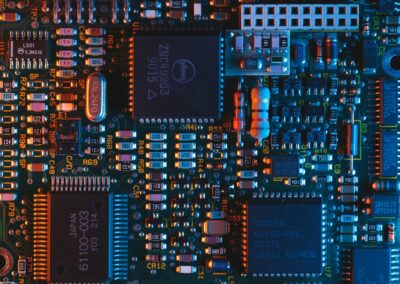Challenges and Solutions for Integrating Digital Twins into Healthcare Systems
Understanding the Role of Digital Twins in Healthcare
Integrating digital twins in healthcare systems represents a groundbreaking advancement in personalized medicine. Digital twins are virtual replicas of physical entities, and in healthcare, they can be used to simulate and analyze the characteristics and behaviors of individual patients. This technology enables precise modeling of patients’ health conditions and treatment responses, facilitating tailored medical interventions. By creating digital models that mirror real-world patients, healthcare providers can enhance diagnostic accuracy and optimize treatment plans.
However, the integration of digital twins into existing healthcare systems poses several challenges. One major issue is the complexity of aligning digital twin technology with current healthcare infrastructure. Existing systems may lack the necessary interoperability to seamlessly incorporate digital twins, leading to potential data silos and inefficiencies. Additionally, ensuring the accuracy and reliability of digital twins requires extensive data collection and integration, which can be a daunting task given the diverse sources of health information.
Despite these challenges, the potential benefits of digital twins in healthcare are substantial. By addressing integration hurdles, healthcare providers can unlock significant advancements in personalized medicine, improving patient outcomes and operational efficiencies. The following sections will explore specific challenges and propose actionable solutions to successfully integrate digital twins into healthcare systems.
Challenges in Data Integration and System Interoperability
One of the primary challenges of integrating digital twins in healthcare systems is achieving seamless data integration and system interoperability. Healthcare systems often operate with a multitude of data formats and sources, including electronic health records (EHRs), medical imaging, and genetic information. Integrating digital twins requires harmonizing these disparate data sources into a cohesive model that accurately represents the patient’s health profile.
Data quality and consistency are crucial for the effective implementation of digital twins. Inaccurate or incomplete data can lead to flawed simulations and unreliable predictions, undermining the potential benefits of digital twin technology. Addressing this challenge involves establishing standardized data formats and protocols to ensure that digital twins receive accurate and comprehensive data inputs. Collaborating with technology providers and adopting industry standards can help mitigate data integration issues and enhance the reliability of digital twin models.
Additionally, healthcare systems must ensure that digital twins can communicate and interact with existing platforms without disrupting current workflows. This requires careful planning and integration strategies to avoid creating data silos or duplicative processes. Implementing middleware solutions and leveraging interoperability standards can facilitate smoother integration and enhance system efficiency.
Privacy and Security Concerns in Digital Twin Integration
Another significant challenge in integrating digital twins in healthcare systems is addressing privacy and security concerns. Digital twins rely on the collection and analysis of sensitive health data, raising concerns about data protection and patient privacy. Ensuring that digital twin technology complies with regulations such as the Health Insurance Portability and Accountability Act (HIPAA) and the General Data Protection Regulation (GDPR) is essential for maintaining patient trust and legal compliance.
Healthcare organizations must implement robust security measures to protect digital twin data from unauthorized access and cyber threats. This includes employing encryption for data transmission and storage, implementing strong access controls, and conducting regular security audits. Furthermore, educating healthcare professionals about data privacy and security best practices is crucial for safeguarding sensitive information.
Addressing privacy and security concerns also involves developing clear data governance policies and procedures. Establishing protocols for data access, usage, and sharing helps ensure that digital twin data is handled responsibly and in accordance with regulatory requirements. By prioritizing data security and privacy, healthcare providers can build confidence in digital twin technology and its role in personalized medicine.
Solutions for Successful Integration of Digital Twins
To overcome the challenges associated with integrating digital twins in healthcare systems, several solutions can be implemented. First, adopting a phased integration approach can help manage the complexity of incorporating digital twins into existing systems. This involves starting with pilot projects or smaller-scale implementations to test and refine integration strategies before scaling up to full deployment.
Investing in advanced technology platforms that support interoperability and data integration is also essential. These platforms can facilitate the seamless exchange of data between digital twins and existing healthcare systems, ensuring that models are accurate and up-to-date. Leveraging cloud-based solutions and data lakes can provide a unified infrastructure for managing and analyzing health data, enhancing the effectiveness of digital twin technology.
Finally, fostering collaboration between healthcare providers, technology vendors, and regulatory bodies can drive successful integration efforts. Engaging with stakeholders early in the process helps identify potential challenges and develop solutions that address specific needs. By working together, organizations can ensure that digital twins are effectively integrated into healthcare systems and deliver the anticipated benefits of personalized medicine.
In conclusion, integrating digital twins in healthcare systems offers transformative potential for personalized medicine but comes with significant challenges. By addressing issues related to data integration, system interoperability, privacy, and security, healthcare providers can successfully incorporate digital twins into their practices. Implementing solutions such as phased integration, advanced technology platforms, and collaborative efforts will pave the way for enhanced patient care and operational efficiency in the healthcare sector.
#IntegratingDigitalTwins #HealthcareSystems #PersonalizedMedicine #DataIntegration #Cybersecurity #DigitalTransformation #ArtificialIntelligence #GenerativeAI #ModernTechnology #SaudiArabia #UAE #Riyadh #Dubai #BusinessSuccess #Leadership #ProjectManagement























